We put these smart assistants to the test
Both the Google Home and the Amazon Echo are powerful smart assistants with many of the same functions, but neither one is the right fit for each person. It can be hard to narrow down which smart assistant will serve your needs best, but it helps to know what you’re deciding between.
This guide will break down the functionality of Google Home vs Amazon Echo to help you decide which of the two is the right choice for your home. Both platforms have impressive functions, some of which are similar, but many of which are specific to the assistant.
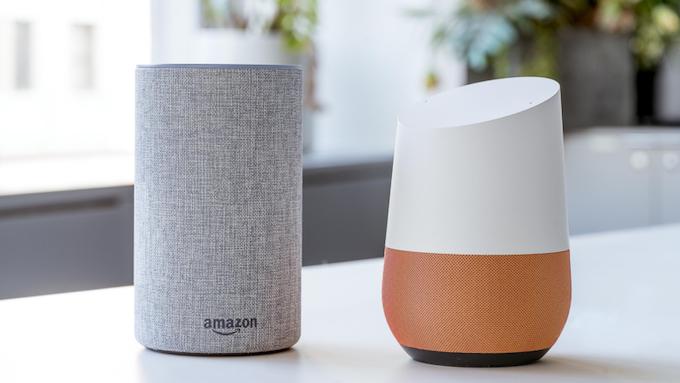
Aesthetic Appeal
One of the major deciding points for people isn’t the functionality, but how good a system will look installed in their home. After all, if you install smart assistants in every room, you want them to look good and fit with the rest of the decor. On that front, neither company has a lead.
The design of the Amazon Echo has improved throughout the years, with the third generation being the most recent iteration for many of the smart speakers. These have a sleek design with rounded corners and fabric covering the exterior. Although the device originally only had three color options, that number has increased to six choices.
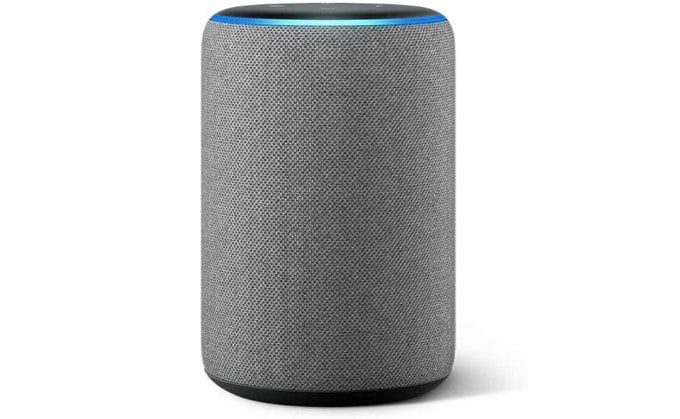
On the other hand, the Google Home Mini has not changed its design much since its launch. It has a similar look to the Amazon Echo Dot, with a rounded top and fabric covering the exterior. The Google Home, the primary assistant for which the system is named, has not changed at all. The only noteworthy change is in the naming scheme. New devices are called Nest, not Google.
Ultimately, the aesthetic appeal of the devices comes down to personal preference.
Budget
Another major factor is how much you are willing to spend. The good news is that there are smart assistants available at virtually all price points, but they are not all created equal.
You have to decide what type of assistant you want. Do you want something geared towards sound, or something with a display? Do you need a small assistant that fits in a room without drawing attention, or are you looking for a balance?
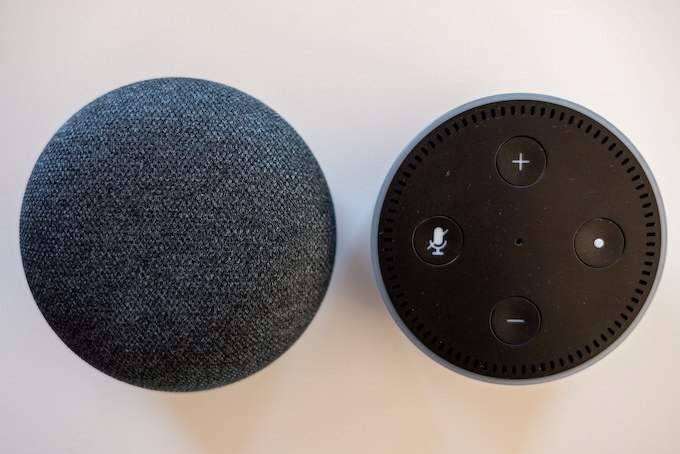
The Amazon Echo Dot and the Nest Home Mini are both roughly $50, while the Amazon Echo and Google Home both retail for close to $100. The Nest Home Hub, the smart assistant with a display, goes for $90, as does the Amazon Echo Show 5.
The prices for both are competitive, and so close that there is no clear winner in this category.
Functionality
The area where these assistants really set themselves apart from one another is in their functionality. There are a huge number of Amazon-branded smart devices that are only compatible with Alexa, and an equal number of Google-branded devices that work only with Google Assistant.
These brand limitations extend beyond first-party devices. The good news is that almost any device that works with Siri will also work with either Amazon Echo, Google Assistant, or both.
Amazon’s Alexa is a powerful system with more than 100,000 “Skills,” app-like functions that users can enable or disable at will. These skills enable Alexa to go far beyond her pre-programmed functionality. Best of all, nearly anyone can program a new Alexa skill to meet a specific need.
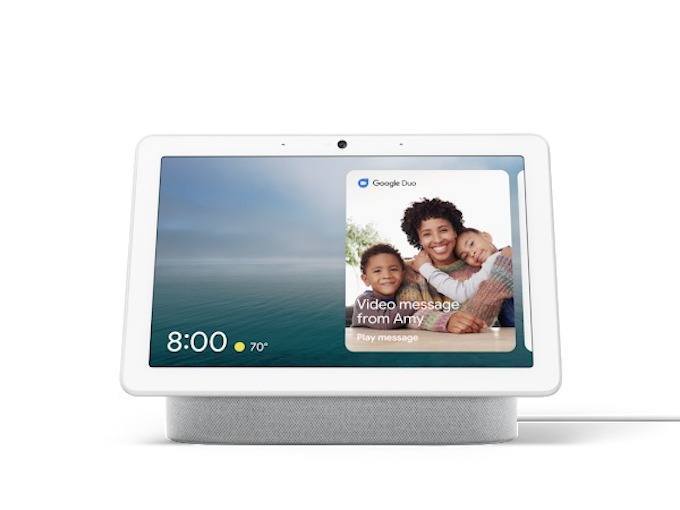
While Google Assistant doesn’t have an easy to use Skill system, that doesn’t mean it isn’t powerful. Google Assistant is capable of doing quite a bit through Google Actions. The Google Actions system is the answer to Alexa Skills, but it isn’t as robust, expansive, or user-friendly as its counterpart.
Google has a few additional features that Alexa does not, particularly on the hardware front. The Nest Home Hub Max, for example, has a Nest Camera built-in. This means your smart display can double as a home security camera.
Google Assistant also supports Google Music and YouTube. On the other hand, Alexa supports Amazon Music and Prime Music. Other streaming services like Spotify can be controlled through either platform.
Alexa tends to be more powerful on the software front (although this isn’t true in every case), while Google Home tends to have the stronger hardware.
Google Home Vs Amazon Echo
Deciding between the two boils down to a few simple questions: what other devices do you have? If your smart devices work mostly with Google Home, then that’s the platform you want to choose. If they are Amazon-specific, choose Alexa instead.
What functions are most important to you? If your entire music library is on Amazon, then Alexa is the better option. If you lean towards Google Music, then opt for Google Home. The Alexa Skills make it a popular choice, but if you don’t need custom skills, either one will work—the differences in functionality are not yet so drastic that it makes a huge difference.
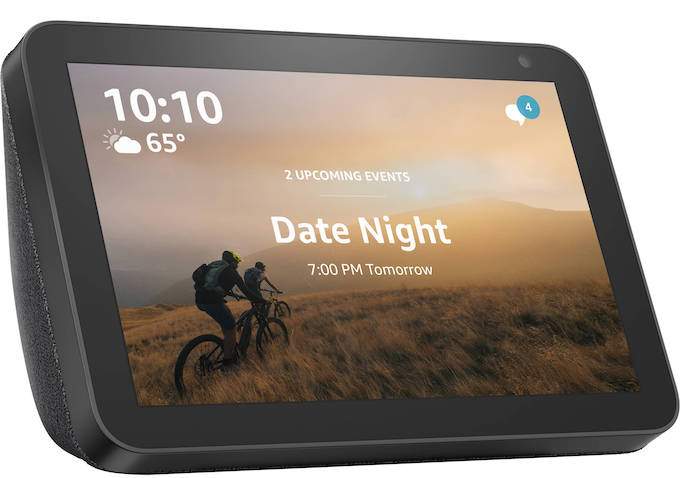
Which one looks better to you? Since aesthetic appeal does play a large role in choosing a smart assistant, pick the one you prefer most.
Finally, what is your budget? The two devices are so close in price that budget is hardly a deciding factor. The miniature, standard, and display versions of both smart assistant platforms are similarly priced. It is only when you reach the high-end of the two that prices vary, and even then it isn’t by much.
If you need a smart assistant, both Amazon Echo and Google Home are great choices. Take the time to decide between the two. If you find that even the low-end models are outside your budget, wait for a sale or special promotion. They come often and are a great way to try the assistants out for yourself.
Do you prefer Google Home or Amazon Echo? Let us know in the comments below.
